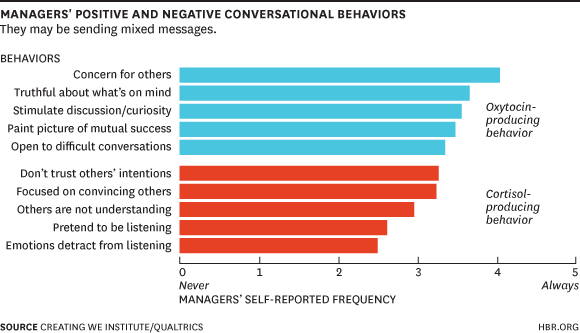Conversation Skills: This is How to Hack Your Yak!
Ok reader, it’s time for you and me to have a conversation about conversation skills. We all know people who have really great conversation skills, and we all know people who have crappy conversation skills. I have uncovered some really interesting conversation skills do’s and don’ts that I would like to share with you.
“That sounds great, but I think first maybe we should discuss some of the reasons that conversation skills are important?”

Well, that’s a great point reader…
There are a Few Reasons That…
Having excellent conversations skills are important as they:
Make you more valuable in the workplace – communication skills are one of the most important skills companies look for when hiring.
Help improve your relationships – as most relationships are built via conversations.
Improve your self-confidence – being able to have great conversations will improve your social life and give you confidence when meeting new people as you are a competent conversationalist.
Help you handle yourself better – you will be less prone to being manipulated and will be able to hold your own in tough situations with toxic and problematic people.
Allow you to understand others better – a big part of being a good conversationalist is active listening which will enable you to ask better questions which will help you understand other’s perspectives.
Allow you to be better understood – good conversationalists are skilled at expressing themselves, thus minimizing potential misunderstandings.
“Is there any neuroscience research that supports keeping conversations positive?”
Wow, another great question reader! I’m glad you asked. Actually, I recently read an article which explained how there is some neurochemistry research that supports the notion of…
…The Importance of Keeping Conversations Positive
According to the research, negative conversations (where we experience criticism, fear or rejection such as when we get into a disagreement or fight with someone or are criticized by someone) can really affect the chemicals in our brain. When a negative conversation happens, a chemical in our brain called cortisol is released which puts us into reactive and sensitive mode as sort of a protection and conflict aversion mechanism. This causes us to perceive things more negatively than they really are and these effects can last at least 26 hours.
Positive conversations, on the other hand, trigger a chemical release in our brains as well, however, instead of cortisol, they trigger the release of a chemical called oxytocin. Oxytocin is a feel-good hormone that increases our ability to communicate, trust and cooperate with others.
The graphic below from HBR.org shows some oxytocin creating behaviors and some cortisol creating behaviors, which are both important to keep in mind both in workplace environments as well as when conversing with others in general:

“That’s fascinating! I didn’t realize there was a neuroscience reason to keep conversations positive!”
Totally agree with you, reader, it’s cool stuff. As I said earlier, I have also been doing a lot of reading and research on…
Some Important Do’s and Don’ts to Improve Your Conversation Skills
Other than keeping things positive, there are some other do’s and don’ts you may want to keep in mind when having conversations with others, such as:
Don’t…Talk About These Things:
There are certain topics you need to avoid when it comes to conversations, especially if you don’t know the person well. The obvious ones are religion and politics. Some others you may want to avoid, especially if you are at work or with someone you don’t know well are:
Sex and relationships – no one wants to hear about all the notches on your bedpost or your weekend hookup, keep that stuff to yourself!
Money – how much you make, how much they make, or how much someone else makes should also be taboo.
Appearance – commenting on that person’s or someone else’s physical appearance is another topic to avoid.

Do…Have Some Go-To Topics
That you can talk about when things get slow. I am not a big fan of the news, but some people are into current events. Other things you can talk about are books or articles you have read, movies you have seen, podcasts you have listened to, or whatever you have been watching on cable or Netflix.
By having some go-to topics you will always able to keep the conversation going.
Don’t…Be a Narcissistic Conversation Partner
I’m sure you know some of these types of people – the ones who turn everything back into them. For example, starting to tell someone about your bikini wax only to have them go off on a tangent about their bikini wax nightmare!
Do…Be Mindful of the Environment Where…
…your conversation is taking place. There are a couple things to consider here:
 Is the venue the appropriate place to be talking about whatever you are talking about? You never know who is listening!
Is the venue the appropriate place to be talking about whatever you are talking about? You never know who is listening!
 Is it a place where you can have a good conversation? For example, a loud and noisy bar may not be as good as a quiet coffee shop or park.
Is it a place where you can have a good conversation? For example, a loud and noisy bar may not be as good as a quiet coffee shop or park.

Don’t…Interrupt
Again, it should be obvious, but give the person a chance to speak and make sure they are done with what they have to say before you jump in. Be mindful of pauses, some people pause for effect or to formulate their next thought, give them space to do it. However, don’t let the other person drone on forever and never give you a chance to speak.
Do…Listen For Clues and Practice Active Listening
 Listening for clues and paying attention to details is a great way to keep a conversation going. For example, they may say they just got back from a trip a couple weeks ago. You may want to use that to ask a follow-up question such as, ‘What was your favorite part of the trip?’
Listening for clues and paying attention to details is a great way to keep a conversation going. For example, they may say they just got back from a trip a couple weeks ago. You may want to use that to ask a follow-up question such as, ‘What was your favorite part of the trip?’
 Active listening is another thing to use as a conversation skill. Some tips for practicing active listening include:
Active listening is another thing to use as a conversation skill. Some tips for practicing active listening include:
 Showing empathy while listening – try to listen and understand what they are feeling.
Showing empathy while listening – try to listen and understand what they are feeling.
 Again, don’t talk, just listen – be silent until they are done talking.
Again, don’t talk, just listen – be silent until they are done talking.
 Clear up things you don’t understand – ask them to explain things that aren’t clear. You can also restate or paraphrase what they have said to confirm understanding.
Clear up things you don’t understand – ask them to explain things that aren’t clear. You can also restate or paraphrase what they have said to confirm understanding.
 Be focused – stop doing anything else, put your phone down and concentrate on them with your undivided attention.
Be focused – stop doing anything else, put your phone down and concentrate on them with your undivided attention.
 Stop thinking about what you are going to say next and simply listen to them.
Stop thinking about what you are going to say next and simply listen to them.
 Try to listen to learn, ask questions or make comments when appropriate.
Try to listen to learn, ask questions or make comments when appropriate.
 Be open-minded, don’t judge what they are saying and try to see their point of view, this goes along with the showing of empathy.
Be open-minded, don’t judge what they are saying and try to see their point of view, this goes along with the showing of empathy.
 Give the other person time to think and consider what you have asked. Sometimes they are taking time to think about and formulate an answer, let them!
Give the other person time to think and consider what you have asked. Sometimes they are taking time to think about and formulate an answer, let them!
Don’t…Gossip or Talk Smack About Others
I really love this quote from Eleanor Roosevelt that I have shared previously, “Small minds discuss people, average minds discuss events, great minds discuss ideas.”
The other thing to remember about gossiping or talking smack, if someone is talking smack about someone else behind their back, they are probably talking smack about you behind yours.
Do…Listen to Dale Carnegie’s Advice
One of my favorite books of all time is How to Win Friends and Influence People by Dale Carnegie – in my opinion, it is a timeless classic. I’m not going to get into the whole book here, but some of my favorite pieces of advice are ones that you can add to your conversation skills repertoire:
 The power of a smile and how it can make you and others feel wonderful.
The power of a smile and how it can make you and others feel wonderful.
 How being genuinely interested in others and their interests rather than focusing on you, is one of the best conversation skills you can have.
How being genuinely interested in others and their interests rather than focusing on you, is one of the best conversation skills you can have.
 Being an active listener and getting people to talk about themselves.
Being an active listener and getting people to talk about themselves.
 Talk in terms of their interests and show an interest in what they are interested in.
Talk in terms of their interests and show an interest in what they are interested in.
Don’t…Use Close-Ended Questions
That requires either a yes or no answer. That is the quickest way to kill a conversation.
Do…Utilize Body Language and Eye Contact
Both yours and theirs to your advantage, some ways to do this include:
 Mirroring their body language, which is a good way to build rapport with anyone.
Mirroring their body language, which is a good way to build rapport with anyone.
 Look at the person while they are talking and make eye contact, so they know you are listening.
Look at the person while they are talking and make eye contact, so they know you are listening.
 Observe their body language – look for cues to understand better what and how they are communicating and whether there are any inconsistencies between their verbal and non-verbal communication.
Observe their body language – look for cues to understand better what and how they are communicating and whether there are any inconsistencies between their verbal and non-verbal communication.

Don’t…Forget to practice!
Like anything becoming a good conversationalist takes practice!
Do…Balance Invitation and Inspiration
To have great conversations, you are going to want to balance what is known as the invitations and inspirations of the conversation.
You can think of invitations as something you say that lets the other person know it is their turn to talk. Whereas an inspiration is something that you say that makes them want to say something – as in you are ‘inspiring’ them to say something.
Invitations are pieces of conversations that typically occur early in the conversation to get it going. For example, an open-ended question forces the other person to answer with more than a yes or no. Stringing a few of those along is a great way to get a conversation going. However, an entire conversation cannot consist only of invitations otherwise it quickly feels like an interrogation instead of a conversation. Starting conversations with invitations (questions) is a good strategy to employ as it puts the focus on your partner and shows you care and are interested in them.
That’s where inspirations come in. Inspirations are pieces of conversations where you say something which inspires or makes them comfortable enough that they want to share something with you. The fact that you are sharing makes them want to share.
Most conversations start with more invitations and then once the participants get comfortable with each other they share inspirations without invitation. If a conversation slows down, you can always use more invitations to get it going again.
“That’s some great stuff! What about talking too much and monopolizing the conversation, what does the research say about that?”
Wow, reader…I am so sorry. I didn’t even realize I went off on a soliloquy there. You make a hell of a great point which brings us to our final don’t…
Don’t…Talk Too Much!!!
It’s a conversation, not a damn lecture! Aim for a conversation where each person is talking equally!
Remember…
The goal of a conversation is to obtain effortless conversational flow. To do this you want to make your partner comfortable so that they are inspired and want to share.
Until next time, practice those conversation skills, don’t talk too much, and until next time…PYMFP!
–Rick
Use it or Lose It
Some conversation skills DO’s and DON’TS to keep in mind:
DO: Keep it positive
DON’T: Talk about sex and relationships, money, physical appearance
DO: Have some go-to conversation topics
DON’T: Be a narcissistic conversation partner
DO: Be mindful of the environment where your conversation is taking place
DON’T: Interrupt
DO: Listen for clues and practice active listening
DON’T: Gossip or talk smack about others
DO: Listen to Dale Carnegie’s advice
DON’T: Use close-ended questions
DO: Utilize body language and eye contact
DON’T: Forget to practice
DO: Balance invitation and inspiration
DON’T: Talk too much!!!
When to Use It
 When you are having conversations in your everyday life.
When you are having conversations in your everyday life.
What Do You Think?
 What are some of the most important conversation skills that you think people are lacking? Do you have any other conversation skills that you have found helpful? Please share in the comments below.
What are some of the most important conversation skills that you think people are lacking? Do you have any other conversation skills that you have found helpful? Please share in the comments below.
If you enjoyed this post, it would mean the world to us if you shared it with people you care about via any of the social media platforms below!
Popular Previous Posts:
This is How to Create an Amazing Memory of a Loved One!
Is the Juice Worth the Squeeze?
Proxemics: Why You Need to Get Out of My Personal Space!
These are 21 of My Favorite Quotes About Life!
One Way to Overcome Temptation (including Drunk Dialing!)
Resources
https://web.archive.org/web/20061030165159/http://hodu.com/con-benefits.shtml
https://hbr.org/2014/06/the-neurochemistry-of-positive-conversations
https://www.improveyoursocialskills.com/conversation/conversation-flow


Well put and well done!
Thanks and thanks for reading!
Very appropriate follow up to your eye contact presentation. When I attend gatherings of historians, the specific interests of the attendees vary tremendously – say from Napoleon to the Berlin Airlift to the settlement of Oregon Territory, just to pick three. About 5 years ago I had a wonderful discussion over drinks with a Norwegian gentleman whose specialized in the trans-Atlantic Cunard shipping line. Yes, he spoke English with an accent, but I had no difficulty in understanding him. Once you determine a person’s interest (basically by asking them – what’s your specialty?) then the obvious follow up question becomes “how did you become interested in that?” And you take it from there.
I also find (see above) that people become better at conversation after having a drink or two. You feel relaxed, not threatened, and are willing to open up, even with a total stranger. A bit of humor often helps things along.
Conversation can be thought of as a two way street, with no one knowing initially where the street will eventually end. Its not a point-counterpoint type of situation, that’s a debate.
Hi Dave, Agreed – taking an interest in the other person is key! Humor and alcohol help too! I like your analogy of a two-way street. Be good, Rick